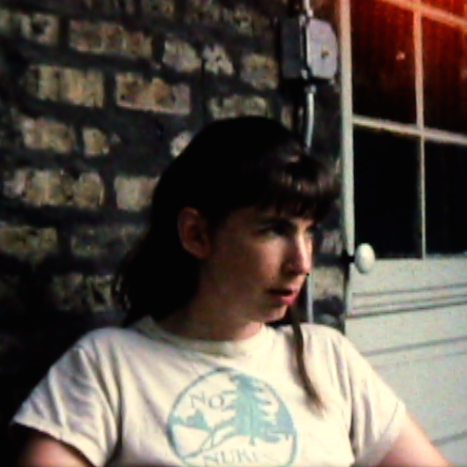Four Short Films by JoAnn Elam

An important figure in Chicago’s experimental film scene, Elam played a pivotal role in establishing Chicago Filmmakers, the 47-year-old institution that was formed with the intention of exhibiting challenging experimental work made by local artists often neglected by the city’s gilded institutions. In addition, she worked for years at the US Post Office while actively taking part in labor rights strikes and other forms of political activity. As such, Elam’s filmic work encompasses a remarkably extensive depiction of gender politics and the lives of the working class. She eloquently captured the plight of society’s most marginal figures, and her work deserves far more recognition than it currently receives.
A good deal of Elam’s work was captured on 8mm acetate, which is a format that is not only rather unstable, but incredibly difficult to access given its limitations in the arena of theatrical projection. Furthermore, most of the films are singular artifacts – workprints – which do not have release prints in distribution. As such, the preservation and stabilization of her films were an urgent matter, and we at CFA are grateful to have received the requisite financial support to ensure the continued survival and accessibility of these works for future generations.
Lie Back and Enjoy It (shot on 16mm) is perhaps Elam’s most well known work, and it offers a probing feminist examination of sexual assault and the representation of women onscreen. It has been referenced in numerous texts on documentary and feminist cinema, and is a fascinating examples of Elam’s interest in merging formal experimentation with incisive political commentary:
Elam shot a number of short films on 8mm that documented aspects of her life in Chicago during the 1970s and ‘80s. One scholar whose research helped to contribute to CFA’s understanding of her oeuvre, the late Chuck Kleinhans (Associate Professor Emeritus in the Radio/TV/Film Department at Northwestern University), notes that “the ‘home’ in home movies really interested her, and she thought domestic space was an important arena for artists.” Films such as Chocolate Cake (ca. 1973) are indicative of her interest in deconstructing common notions of domesticity, revealing a darkly comedic and sardonic edge to her work:
Alongside this are her attempts to rework the common stories of childhood through film: Beauty and the Beast (ca. 1973) and 3 Goats and a Gruff (ca. 1960s). Both films embody an almost childlike poetry that also serves to convey a twisted fairytale take on contemporary womanhood, steeped in an awareness of class structures:


